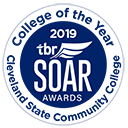Median wages
$66,350
Investigate processes of learning and teaching and develop psychological principles and techniques applicable to educational problems.
- Compile and interpret students' test results, along with information from teachers and parents, to diagnose conditions and to help assess eligibility for special services.

- Select, administer, and score psychological tests.

- Interpret test results and prepare psychological reports for teachers, administrators, and parents.

- Counsel children and families to help solve conflicts and problems in learning and adjustment.

- Provide consultation to parents, teachers, administrators, and others on topics such as learning styles and behavior modification techniques.

- Report any pertinent information to the proper authorities in cases of child endangerment, neglect, or abuse.

- Maintain student records, including special education reports, confidential records, records of services provided, and behavioral data.

- Assess an individual child's needs, limitations, and potential, using observation, review of school records, and consultation with parents and school personnel.

- Collect and analyze data to evaluate the effectiveness of academic programs and other services, such as behavioral management systems.

- Promote an understanding of child development and its relationship to learning and behavior.

- Develop individualized educational plans in collaboration with teachers and other staff members.

- Attend workshops, seminars, or professional meetings to remain informed of new developments in school psychology.

- Serve as a resource to help families and schools deal with crises, such as separation and loss.

- Collaborate with other educational professionals to develop teaching strategies and school programs.

- Refer students and their families to appropriate community agencies for medical, vocational, or social services.

- Initiate and direct efforts to foster tolerance, understanding, and appreciation of diversity in school communities.

- Design classes and programs to meet the needs of special students.

- Provide educational programs on topics such as classroom management, teaching strategies, or parenting skills.

- Conduct research to generate new knowledge that can be used to address learning and behavior issues.
- Analytical or scientific software — Testing software

- Computer based training software — Instructional software

- Data base user interface and query software — Centris Group IEP Direct; Global Education Technologies EXCENT; PowerSchool Group PowerSchool SIS; Vision Management Consulting IEP PlaNET

- Electronic mail software — Email software

- Internet browser software — Web browser software

- Office suite software — Microsoft Office

- Optical character reader OCR or scanning software — Test scoring software

- Presentation software — Microsoft PowerPoint


- Spreadsheet software — Microsoft Excel


- Word processing software — Ewing Solutions QuickWriter; Microsoft Word

![]() Hot Technology — a technology requirement frequently included in employer job postings.
Hot Technology — a technology requirement frequently included in employer job postings.
- Active Listening — Giving full attention to what other people are saying, taking time to understand the points being made, asking questions as appropriate, and not interrupting at inappropriate times.

- Reading Comprehension — Understanding written sentences and paragraphs in work related documents.

- Social Perceptiveness — Being aware of others' reactions and understanding why they react as they do.

- Speaking — Talking to others to convey information effectively.

- Writing — Communicating effectively in writing as appropriate for the needs of the audience.

- Critical Thinking — Using logic and reasoning to identify the strengths and weaknesses of alternative solutions, conclusions or approaches to problems.

- Monitoring — Monitoring/Assessing performance of yourself, other individuals, or organizations to make improvements or take corrective action.

- Active Learning — Understanding the implications of new information for both current and future problem-solving and decision-making.

- Complex Problem Solving — Identifying complex problems and reviewing related information to develop and evaluate options and implement solutions.

- Judgment and Decision Making — Considering the relative costs and benefits of potential actions to choose the most appropriate one.

- Negotiation — Bringing others together and trying to reconcile differences.

- Time Management — Managing one's own time and the time of others.

- Coordination — Adjusting actions in relation to others' actions.

- Learning Strategies — Selecting and using training/instructional methods and procedures appropriate for the situation when learning or teaching new things.

- Persuasion — Persuading others to change their minds or behavior.

- Service Orientation — Actively looking for ways to help people.

- Instructing — Teaching others how to do something.

- Systems Analysis — Determining how a system should work and how changes in conditions, operations, and the environment will affect outcomes.

- Systems Evaluation — Identifying measures or indicators of system performance and the actions needed to improve or correct performance, relative to the goals of the system.

- Management of Personnel Resources — Motivating, developing, and directing people as they work, identifying the best people for the job.










